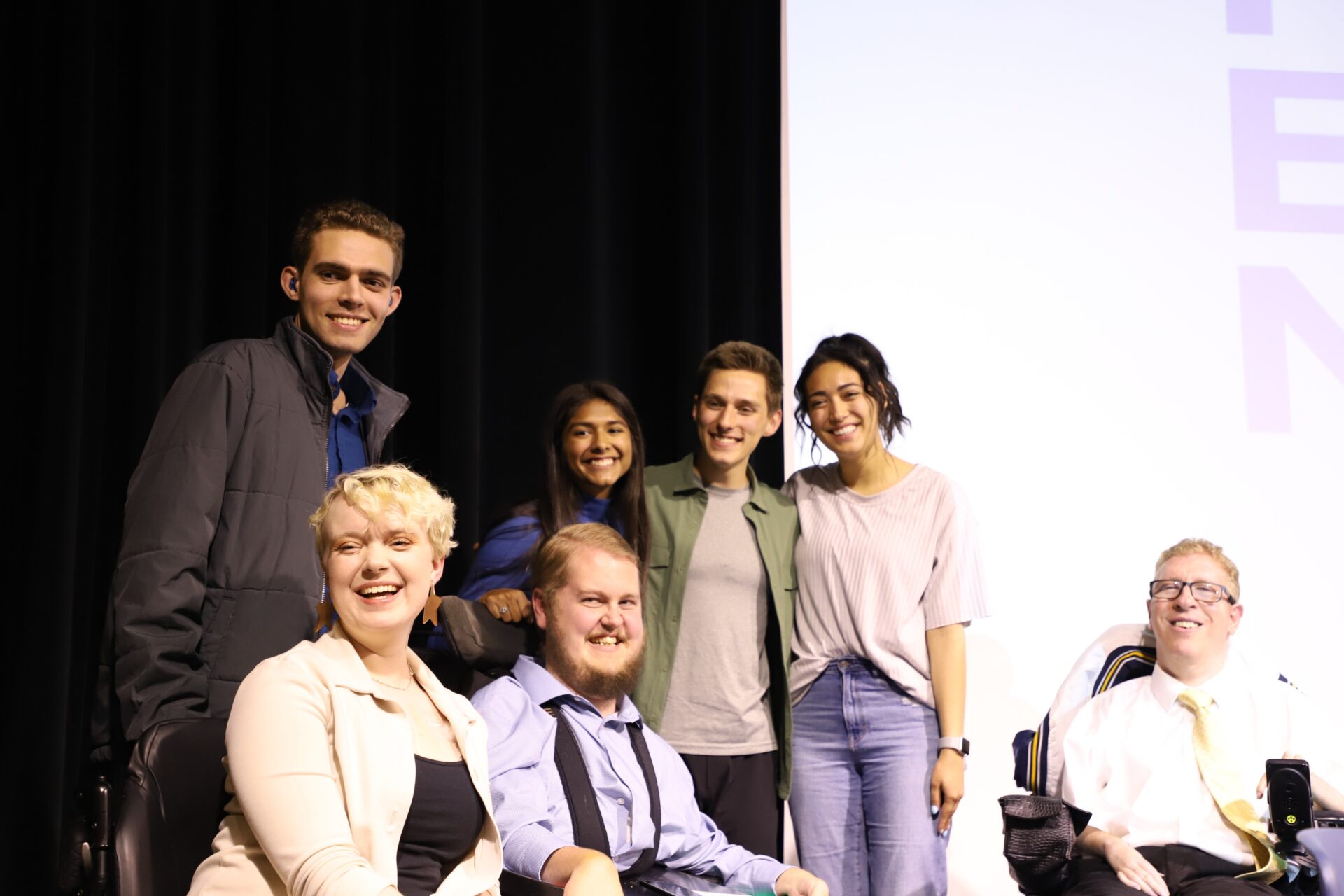
BYU students gathered to hear six panelists discuss inclusion amongst those with various disabilities at Thursday’s BYUSA sponsored PEN Talk.
All of the panelists were BYU students who have some form of disability. These included physical, auditory and neurological disabilities.
Students in the audience were permitted to submit anonymous questions for the panel. Questions included how to respectfully talk about and address disability issues, what inclusion looks like and how disabilities can affect mental health.
“I think it’s important that we don’t see disability as a scary thing,” said Tyler Briggs, the panel moderator and member of BYU’s University Accessibility Center. “I think it’s appropriate to ask questions.”
The panel focused the conversation on the importance of inclusion and support, and resources for students on campus who deal with a variety of disabilities. Each of the panelists took turns telling their stories and relaying personal experiences.
BYU journalism senior Hailey Manley spoke about her experiences battling Lupus, an inflammatory disease which can affect many different body systems. She spoke of how it has affected her studies, especially during COVID-19, as she was at greater risk and had to take precautions such as not attending class in person.
“I don’t look like I have an illness, it doesn’t look like there’s something wrong with me,” Manley said. “It’s important to remember that disabilities come in all shapes and sizes and to be respectful.”
David Schekall, a junior studying elementary education, has been deaf since birth. He said he relies solely on sign language to understand others and said he has often felt left out in social situations.
“Inclusion is going to be awkward, it’s going to be hard, it’s never going to be easy and it’s always going to be a learning process,” Schekall said. “I think patience and grace is really the benefactor that supports inclusion.”
As the panel discussion came to an end, a common takeaway was that each person is more than their disability. Molly Hansen, a senior studying family history, said she wants to be known as more than her disability, but also doesn’t shy away from it.
“I am disabled, I’m a plant lover, I’m a member of The Church of Jesus Christ of Latter-day Saints, I’m a professional genealogist and I’m a terrible artist,” Hansen said.
This event was the concluding PEN Talk of the semester. Each of the panelists encouraged those in the audience to make an extended effort to strive for inclusion going forward in order to facilitate a better university experience for disabled students.
“Just nod your head and show that you care,” Manley said. “You can show sincerity that you’re there to be a friend and I think that’s the most important thing you could do for anyone who has a disability.”




